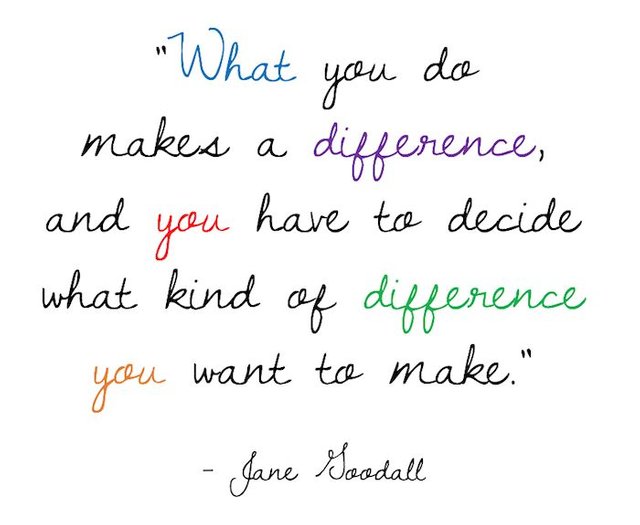A Powerful Social Influence Created By Social Situations
A Powerful Social Influence Created By Social Situations

Image Source

At the point when individuals are made a request to demonstrate the things that they esteem the most, they generally specify their social circumstance, that is their associations with other individuals. When we cooperate on a class extend, volunteer at a destitute sanctuary, or serve on a jury in a court trial, we rely on others to work with us to take care of business. We create social bonds with those individuals, and we expect that they will come through to enable us to meet our objectives.
The significance of others appears in each part of our lives, other individuals show us what we ought to and shouldn't do, what we ought to and shouldn't think, and even what we ought to and shouldn't care for and despise. Notwithstanding the general population with whom we are right now communicating, we are impacted by individuals who are not physically present but rather who are by and by part of our musings and emotions.
Envision that you are driving home on an abandoned nation street late around evening time. No autos are obvious toward any path, and you can see for miles. You ground to a halt sign. What do you do? In all likelihood, you stop at the sign, or if nothing else back off. You do as such in light of the fact that the behavior has been disguised: Even however nobody is there to watch you, others are as yet affecting you, you've found out about the tenets and laws of society, what's privilege and what's wrong, and you have a tendency to obey them. We convey our very own social circumstances, our encounters with our folks, educators, pioneers, experts, and companions around with us consistently.
A critical rule of social psychology is that in spite of the fact that people's attributes do make a difference, the social circumstance is frequently a more grounded determinant of behavior than is personality. At the point when social psychologists investigate an occasion, for example, a faction suicide, they are probably going to concentrate more on the qualities of the circumstance than on the attributes of the religion individuals themselves.
For instance, we will see that even normal individuals who are neither terrible nor malicious in any capacity can all things considered be put in circumstances in which an expert figure can lead them to take part in fiendish behaviors, for example, applying possibly deadly levels of electrical stun. Notwithstanding finding the striking degree to which our behavior is impacted by our social circumstance, social psychologists have found that we frequently don't perceive how critical the social circumstance is in deciding behavior.
We frequently wrongly imagine that we and others act altogether voluntarily, with no outer impacts. It is enticing to accept that the general population who submit extraordinary acts, for example, fear based oppressors or individuals from suicide religions, are irregular or outrageous individuals. But then much research proposes that these behaviors are caused more by the social circumstance than they are by the qualities of the people and that it isn't right to concentrate so unequivocally on clarifications of people's attributes.
There is maybe no clearer case of the capable impact of the social circumstance than that found in inquire about demonstrating the colossal part that others play in our physical and emotional well-being. Social bolster alludes to the solace that we get from the general population around us, for example, our family, companions, schoolmates, and associates.
Social Psychology in the Public Interest
In correlation with the individuals who don't feel that they have a system of others they can depend on, individuals who feel that they have sufficient social bolster report being more joyful and have likewise been found to have less mental issues, including dietary problems and emotional sickness.
Individuals with social support are less discouraged by and large, recoup quicker from negative occasions, and are more averse to submit suicide yet and by and large, an upbeat marriage is an incredible type of social support. One of the objectives of viable psychotherapy is to enable individuals to produce better social encouraging groups of people in light of the fact that such connections have such a beneficial outcome on psychological wellness.
Notwithstanding having better emotional well-being, individuals who have satisfactory social support are all the more physically solid. They have less ailments, live more, have bring down circulatory strain, and have less passings at all ages. Games psychologists have even discovered that people with larger amounts of social support are less inclined to be harmed playing sports and recuperate all the more rapidly from wounds they do get.
These distinctions seem, by all accounts, to be because of the beneficial outcomes of social support upon physiological working, including the resistant framework. The inverse of social support is the sentiment being prohibited or alienated. Feeling that others are barring us is excruciating, and the torment of dismissal may wait considerably longer than physical torment.
Individuals who were made a request to review an occasion that caused them social torment evaluated the torment as more extreme than they appraised their recollections of serious physical agony. At the point when individuals are undermined with social rejection, they accordingly express more prominent enthusiasm for making new companions, increment their longing to work helpfully with others, shape more positive early introductions of new potential association accomplices, and even turn out to be more ready to segregate between genuine grins and fake grins.

Image Source
Since associating with others is such an imperative piece of human experience, we may in some cases withhold alliance from or alienate other individuals keeping in mind the end goal to endeavor to compel them to fit in with our desires. At the point when people of the Amish religion abuse the decisions of a senior, they are set under a Meidung.
Amid this time, and until the point that they offer some kind of reparation, they are not addressed by group individuals. What's more, individuals regularly utilize the quiet treatment to express their objection to a companion's or accomplice's behavior. The agony of alienation is especially solid in youths.
The utilization of shunning has additionally been seen in guardians and kids, and even in Internet recreations and talk room. The quiet treatment and different types of alienation are prevalent in light of the fact that they work. Withholding social correspondence and association is an effective weapon for rebuffing people and constraining them to change their behaviors. People who are segregated report feeling alone, disappointed, dismal, and unworthy and having lower confidence.
Taken together, at that point, social mental research comes about propose that a standout amongst the most critical things you can accomplish for yourself is to build up a steady encouraging group of people. Connecting with other individuals benefits the individuals who turn into your companions and has significant advantages for you.

Image Source

Reference:
Social Psychology Principles
By: Charles Stangor
Congratulations! This post has been upvoted from the communal account, @minnowsupport, by juvyjabian from the Minnow Support Project. It's a witness project run by aggroed, ausbitbank, teamsteem, theprophet0, and someguy123. The goal is to help Steemit grow by supporting Minnows and creating a social network. Please find us in the Peace, Abundance, and Liberty Network (PALnet) Discord Channel. It's a completely public and open space to all members of the Steemit community who voluntarily choose to be there.
If you like what we're doing please upvote this comment so we can continue to build the community account that's supporting all members.
@juvyjabian got you a 100.0% @minnowbooster upvote, nice!